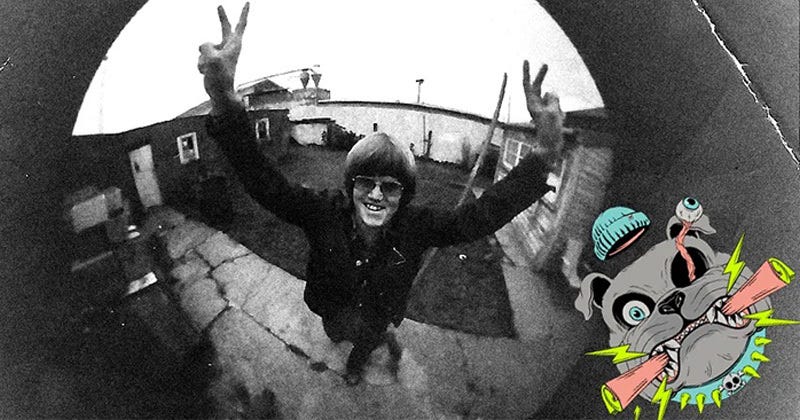The justice minister’s stacked list
Kiritapu Allan has more bills at the select committee than any of her government colleagues. Yesterday she announced two new areas of work and that hate speech law will be through before the election
Mōrena and welcome to The Bulletin for Monday, October 31, by Anna Rawhiti-Connell. Presented in partnership with Z Energy.
In today’s edition: new poll puts New Zealand First in kingmaker position; complaints about airfares costing two to three times more than they did pre-pandemic; was it harder to buy a house in 1990; but first, alcohol law, name suppression and hate speech all in minister’s sights
Justice minister Kiritapu Allan announced proposed changes to alcohol law on Sunday (Photo: RNZ / Samuel Rillstone)
Justice minister has full legislative slate
Of the 26 government bills currently at select committee stage (this excludes members’ bills), Kiritapu Allan is the minister in charge of six of them, more than any of the government’s other ministers or MPs. On top of two bills targeting gangs, there is also electoral law reform, a bill aimed at tackling delays in the Family Court, the bill to allow Māori voters to switch electoral rolls at any time (report due this week) and counter terroism legislation. As Newsroom’s Marc Daalder reports, there is growing discomfort at the number of changes being made to terrroism law over a short space of time. Allan herself doesn’t think the constant tinkering is “appropriate”.
Hate speech law to be passed before election
This was all before Allan made three further announcements yesterday. Speaking to TVNZ’s Q&A, Allan said the government is proposing changes to alcohol laws, that she is seeking urgent changes to name suppression law and that hate speech law will be passed before the election next year. The commitment to hate speech law being passed before the election differs from comments made in March by the former justice minister. You’ll recall the bill got buried in a quagmire of flubs about whether calling someone “a boomer” or “a Karen” would be hate speech and whether the law would only apply if someone was inciting violence and hatred. Allan said an announcement on hate speech law will be made before the end of the year.
Proposed changes to alcohol laws a win for Chlöe Swarbrick
The changes to alcohol law are proposed to take place over two stages. The first will pick up the work Green MP Chlöe Swarbrick has been doing by making changes to alcohol licensing; giving community opponents to liquor licences more power to have a say over how alcohol sales are regulated in their neighbourhoods. This morning the Herald’s Issac Davison (paywalled) called the proposed changes “a major victory” for Swarbrick. The second stage will examine alcohol marketing and sponsorship which is also part of Swarbrick’s members’ bill, as I’ve covered recently.
Well-resourced defendants have an easier time in court –a fair perception
Allan also said she also wants urgent changes made to name suppression law. Asked if name suppression is working, Allan said "I don't think so." She said the perception that well-resourced defendants had an easier time in court was fair. "I don't think that leads to just outcomes, and it's certainly an area that's at the top of my priorities because it does fall under that access to justice and a victim-centric system," she said. Just this week, after persistent efforts by Stuff and the NZ Herald, former National party president Michelle Boag lost name suppression in the case involving a high profile businessman (who still has name suppression). In 2021, RNZ revealed Pākehā are three times more likely to be granted name suppression as Māori.
An interesting sort of junkie
In an excerpt from Jim Wilson’s new memoir You Can’t Put That There!, the man behind Phantom Billstickers gives a glimpse into his reckless youth in the 1970s. “It was now early morning, and we were beginning to hang out because our methadone from the day before was starting to wear off. We were sick and breaking our necks to get better. When The Nark and I got that safe open at Musselburgh, we just looked at each other and laughed.” Read the full excerpt on The Spinoff now, and preorder your copy today (sponsored).
The government's record of delivery, poll puts NZF in kingmaker position
Stuff’s Thomas Manch and Anna Whyte look at the government’s record of delivery over the last five years this morning. They zone in on promises to increase the number of police, build houses, lift the minimum wage, lift kids out of poverty, plant trees and increase spending on medicines. Manch also has new poll results from Horizon Research that put New Zealand First (NZF) in the position of kingmaker. The poll has support for New Zealand First at 6.75% and was conducted a week after NZF leader Winston Peters launched the party’s 2023 campaign at its annual conference. The margin of error is 3.5%. The poll placed Labour at 31.37% and National at 28.32%.
Passengers complain of airfares being“two to three times higher” than they were pre-pandemic
Air New Zealand is warning travellers to book holidays early. A combination of rising fuel prices, inflation and high demand have forced it to review and hike its airfares. I can confirm things look a lot costlier after scouting fares over the weekend and wondering if we should give up on our first overseas trip since 2019. RNZ headed to Auckland Airport where both domestic and international passengers complained of fares doubling or tripling. Aviation commentator Irene King said the high cost of travel was a global problem, and while travel seemed inaccessible to many with the rising cost of living, she predicted the market would correct itself by 2024.
Journalism is an essential part of society and shouldn’t be a privilege of those who can afford it. The support of readers like yourself helps to ensure The Spinoff remains freely accessible to all, regardless of their ability to pay. If you value what we do and have the means to do so, please make a donation today.
Was it harder to buy a house in 1990?
Spend any time in the comments sections of news stories about house prices (a habit I need to break) and you’ll find there's usually at least one person saying it was much harder to buy a house in the late 80s and early 90s than it is now. Well, Stuff’s Rob Stock has set out to end that argument once and for all. Despite what the Misery Index (an actual index that combines rate of inflation and rate of unemployment) might say about 1990 being generally more awful than now, Nick Goodall, head of research at property research company CoreLogic, has crunched some numbers on housing affordability. Goodall thinks the index misses a trick by not including miserable housing affordability information. In summary: it's harder to afford a home now than it was in 1990. interest.co.nz’s Greg Ninness also writes that first home buyers are worse off now than they were in September 2019.
Click and collect
Expectations are that Wednesday’s unemployment rate will be lower than last quarter. BusinessNZ says workforce is nearing dangerous levels of burn-out
Government to lift bus driver wages, officials advise the first fair pay agreement could be at least 15 months away (paywalled)
Why Jarrod Gilbert would buy Bill English a beer (paywalled)
Russia suspends grain export deal that was helping keep food prices down
Lula slight favourite to oust Bolsonaro in Brazilian elections
Got some feedback about The Bulletin, or anything in the news? Get in touch with me at thebulletin@thespinoff.co.nz.
If you liked what you read today, share The Bulletin with friends, family and colleagues.
Lee Ostler explains why Māori students shouldn’t be expected to teach cultural competency; Bernard Hickey wonders why we’re OK with low-earners being walloped by inflation while banks make out like bandits; Alex Casey discovers why the Black Ferns are obsessed with hair scrunchies; James Wenley reflects on what it’s like being an artist and asexual; and Chris Schulz talks to Oscar Kightley about his Sione’s Wedding prequel Duckrockers, which starts this week on TVNZ.
Post-mortem Monday
LockerRoom’s Suzanne McFadden looks at how the Black Ferns’ can beat France in the Rugby World Cup semi-final following their win against Wales this weekend. The Canadian team beat the US yesterday so will play tournament favourites England in the other semi-final. Phil Gifford (paywalled) calls the Ferns game the better watch on Saturday night. Paul Cully has the five main talking points following the All Blacks’ “laboured” win over Japan. For cricket fans, The Bounce’s Dylan Cleaver writes “When people look back on the impact of the digital revolution they will likely brush over the global impact of the Plunket Shield being streamed live on YouTube.” Andrew Voerman interrogates the new style of running between the wickets on display from Glenn Phillips during Saturday night’s T20 win against Sri Lanka.
What are the boundaries between journalist and subject?
Great feature from Naomi Arnold yesterday about the perils of reporting and writing about very difficult stuff. Arnold spoke to journalist and writer Anke Richter. Richter’s new book, Cult Trip, explores the abuse dynamics connecting Centrepoint, Agama yoga training centre in Thailand and Gloriavale. Arnold got in one of my favourite lines from one of my favourite writers, Janet Malcolm. “Every journalist who is not too stupid or full of himself to notice what is going on knows that what he does is morally indefensible.”
White Sunday
I loved this photo essay on Stuff yesterday from White Sunday. Observed in Sāmoa (and therefore here) on the second Sunday of October, White Sunday is an annual celebration of children. Taualofa Totua writes that White Sunday is a highlight in the calendar sartorially as well as spiritually. The beautiful photos are by Geoffery Matautia.










